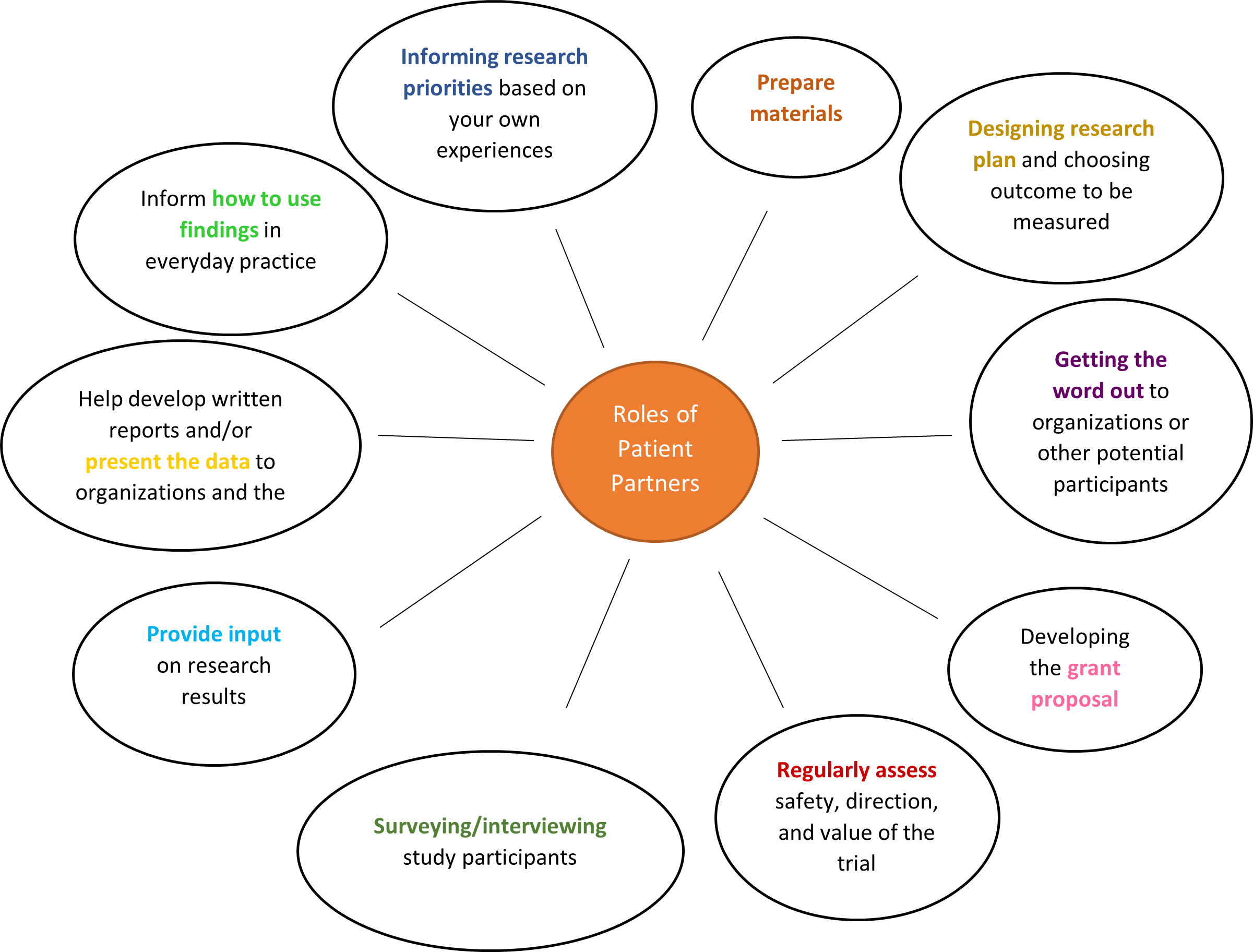What is Patient Engagement?
There are varying levels of patient engagement within research, one of the most well known being participation in a research study. For instance, you or someone you know may be participating in a clinical trial to help advance treatment, diagnosis, or other aspects of care for a medical condition.
But did you know there are other ways for the public to be involved in research?
Patient engagement in research goes beyond study or clinical trial participation and involves active partnership between researchers and patients. The patient (also called a patient partner) works as part of the research team and provides input on various aspects of a study.

From www.cihr-irsc.gc.ca
What is a patient?
The Canadian Institutes of Health Research (CIHR) broadly defines patients to include people with direct experience of a health issue, as well as their informal caregivers such as family and friends. Patients who participate in patient-oriented research, are called Patient Partners.
Why is patient engagement in research important?
The Canadian Institutes of Health Research (CIHR) broadly defines patients to include people with direct experience of a health issue, as well as their informal caregivers such as family and friends. Patients who participate in patient-oriented research, are called Patient Partners.
The goal of patient-oriented research is to improve healthcare for all patients by identifying priorities within the community.
This includes improvements to:

What are Knowledge Users?
In Canada, health research is extending not only to include patients in the research process, but also care providers and health system decision makers. Collectively, patients, care providers and health system decision makers are known as knowledge users because they are the ones who will eventually use the results of the research. The aim of having knowledge users on a research team is to make research more relevant to those living with the condition or disease under study.
Researchers and knowledge users work together to:
- Oversee research projects and support networks
- Identify and address patient needs
- Conduct meaningful research
- Make sure new knowledge reaches those who need it
Who supports patient engagement in research?
The Strategy for Patient-Oriented Research (SPOR) is an initiative formed by CIHR which provides a framework across Canada aimed at improving patient engagement in research. SPOR helps to ensure that patients and their families are at the heart of healthcare and that they can participate in research with confidence. This initiative also provides health and research professionals with the tools to include, support, and celebrate patients in their roles. There are also patient engagement organizations within the US and UK that called PCORI and INVOLVE respectively.
What should I expect as a partner in research?
Inclusiveness– Your perspective should be recognized by researchers and other partners.
Support– Everyone involved, including yourself, researchers, and clinicians should have proper training, education, and knowledge of cultural considerations. Everyone should feel safe in this environment.
Mutual respect– Both the patient’s and researcher’s experience and expertise are of equal value and should be respected.
Co-building– Committed and meaningful collaboration from beginning to end.
What kinds of roles could I have as a partner?






